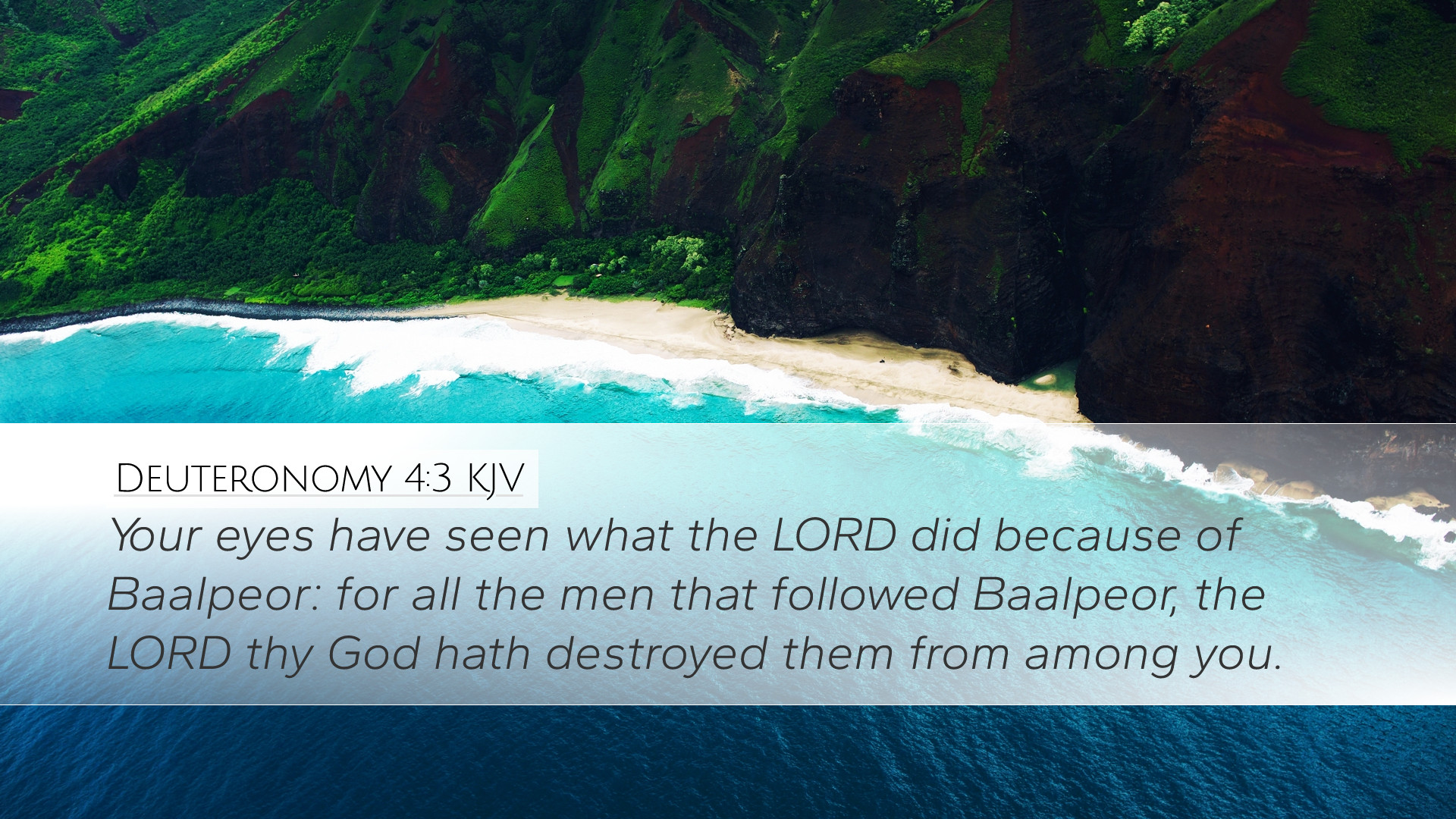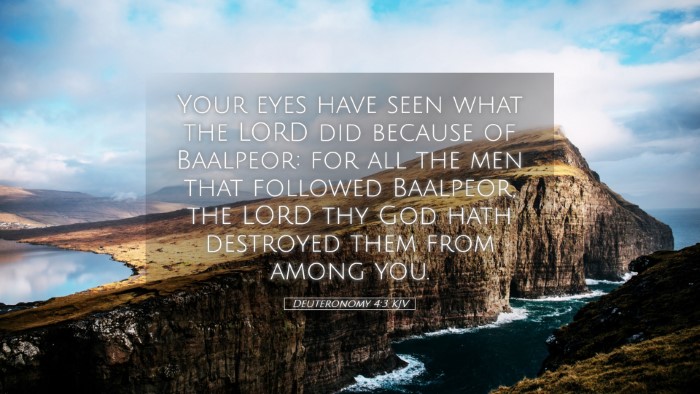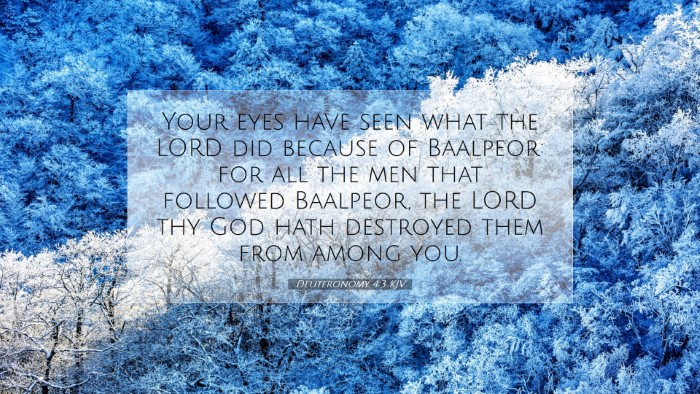Commentary on Deuteronomy 4:3
Deuteronomy 4:3: "Your eyes have seen what the Lord did at Baal Peor; for the Lord your God has destroyed from among you all the men who followed Baal of Peor."
Historical Context
The Book of Deuteronomy is primarily composed of a series of speeches delivered by Moses to the Israelites, stationed on the plains of Moab before entering the Promised Land. This verse references a pivotal moment in Israel's history, specifically the events surrounding Baal Peor, a site associated with idolatry and immorality where the Israelites lured into sin faced God's judgment (Numbers 25:1-9). As the people prepare to enter Canaan, Moses emphasizes the importance of fidelity to Yahweh and the consequential destruction that follows unfaithfulness.
Theological Significance
This verse serves as a solemn reminder of the consequences of idolatry. Matthew Henry notes that God's swift action against the offenders demonstrates His holiness and justice. The Israelites had witnessed firsthand the dire effects of turning away from God, which underscores the necessity of obedience to Divine commandments. Albert Barnes elaborates on this point, asserting that the destruction was not merely punitive but also a corrective measure, meant to deter future disobedience among the people of God.
Expositions from Commentators
Matthew Henry
Matthew Henry emphasizes the importance of remembering past events as instructive lessons. He suggests that the Israelites were to reflect upon their deliverance and the fate of the idolaters to strengthen their resolve against similar temptations. The phrase "Your eyes have seen" implies a direct acquisition of knowledge through experience, and this personal witness is called upon to cultivate a lasting fear of the Lord.
Albert Barnes
In his commentary, Barnes insists that such historical reflections serve a dual purpose: they remind the Israelites of both the mercy and judgment of God. By recalling the destruction of those who followed Baal Peor, Barnes points out that it reinforces the understanding of God’s inseparable relationship between holiness and judgment. He argues that obedience to God is not merely an act of submission but an acknowledgment of His sovereignty and righteousness.
Adam Clarke
Adam Clarke provides further insights into the nature of idolatry represented by Baal Peor. He highlights the spiritual implications of turning away from God and how idolatry leads to moral decay. Clarke underlines that the defeat of the idolaters not only serves as a warning but acts as a pivotal moment that exemplifies God’s power to deliver and destroy. This repeating theme throughout scripture is essential for understanding the covenantal relationship between God and Israel.
Applications for Today’s Believers
This verse poses several important applications for contemporary believers:
- Reflection on God’s Actions: Believers are urged to reflect on history and scripture as a guide for living a life that honors God, taking heed of the consequences faced by those who stray from His teachings.
- The Danger of Idolatry: In a modern context, idolatry might not manifest as the worship of foreign gods, but can take the form of materialism or misplaced priorities. Understanding the seriousness of God’s judgment can help believers evaluate their own lives critically.
- The Call to Obedience: This verse serves as a reminder that faith must be accompanied by active obedience. The relationship between faith and actions is vital for spiritual growth and community integrity.
- God’s Justice and Mercy: The dual themes of justice and mercy are highlighted. Believers are encouraged to rejoice in God’s mercy, which spares them from judgment, while simultaneously recognizing the seriousness of sin.
Concluding Thoughts
Deuteronomy 4:3 stands as a powerful exhortation for the people of God throughout all ages. The vivid recollection of God’s judgment on the idolaters at Baal Peor serves multiple roles—it warns against the dangers of idolatry, reinforces the need for strict adherence to God’s commands, and invites a deeper understanding of God’s character. As we engage with this text, let us do so with reverence, learning from history and applying its lessons to our lives in pursuit of holiness and faithfulness.


